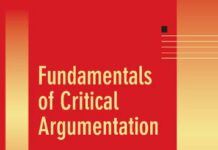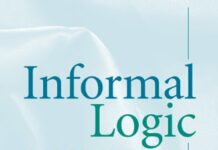
Ebook Info
- Published: 1996
- Number of pages: 307 pages
- Format: PDF
- File Size: 31.98 MB
- Authors: Douglas Walton
Description
We are happy to present to the reader the first book of our Applied Logic Series. Walton’s book on the fallacies of ambiguity is firmly at the heart of practical reasoning, an important part of applied logic. There is an increasing interest in artifIcial intelligence, philosophy, psychol ogy, software engineering and linguistics, in the analysis and possible mechanisation of human practical reasoning. Continuing the ancient quest that began with Aristotle, computer scientists, logicians, philosophers and linguists are vigorously seeking to deepen our understanding of human reasoning and argumentation. Significant communities of researchers are actively engaged in developing new approaches to logic and argumentation, which are better suited to the urgent needs of today’s applications. The author of this book has, over many years, made significant contributions to the detailed analysis of practical reasoning case studies, thus providing solid foundations for new and more applicable formal logical systems. We welcome Doug Walton’s new book to our series.
User’s Reviews
Reviews from Amazon users which were colected at the time this book was published on the website:
⭐The word “ambiguity” in the title of this book is an umbrella term which Douglas Walton utilizes to bring unity to a hitherto disparate group of “linguistic” fallacies that have been historically neglected by logicians, until the appearance of this book.To avoid the ambiguity of “ambiguity,” utilize AMAZON.com’s “LOOK INSIDE” feature to inform yourself of the exact subject matter addressed by this book – look at the table of “contents.”Like all of Douglas Walton’s books, FALLACIES ARISING FROM AMBIGUITY (1996) “breaks new ground” as a pioneering scholarly work about the “class” of fallacies arising from “ambiguity,” which Walton describes as a “sleepy giant of a subject.” Walton rightly says these fallacies are “serious errors” occurring in argumentation that “are not trivial, as they are often assumed to be by students,” but are “serious errors” or “traps” in reasoning that are “realistically deceptive.”As usual, the culprit for the historic neglect of these serious fallacies is with logic textbook treatments of this subject, which are typically superficial and lacking in uniformity, being “all over the place, offering widely different accounts of these supposed fallacies.” These inadequate and confusing traditional textbook treatments have been “handed down from one generation of textbooks to another since Aristotle’s time.” (page xiii).This book includes a highly welcome, and urgently needed, 35-page chapter on the subject of “innuendo,” that describes how innuendo can be abused, to deceive, and to thereby create a fallacy. Deceptive use of innuendo is a pet peeve of mine, particularly when innuendo is abused to avoid fulfilling one’s burden of proof.Walton states (page 280) that this pioneering treatise “does not represent the last word on fallacies arising from ambiguity.” However, this treatise is a superlative leap forward in bringing deeper understanding to this neglected subject.Unfortunately, the binding of the hardbound edition of this book is glued, not stitched. The binding of my copy of this book cracked when I first opened it. However, don’t let this stop you from obtaining this informative treatise.NOTE (June 10, 2012): I almost never read a book by constant reference to its index. However, I increasingly find myself constantly referring to indices of Douglas Walton’s various treatises, to cross-reference these treatises’ related subject-matter. I have not performed an extensive study of the index of Douglas Walton’s FALLACIES ARISING FROM AMBIGUITY, but I have found it to be unreliable and seriously deficient. However, this does not torpedo my five star rating of FALLACIES ARISING FROM AMBIGUITY, which stands on this treatise’s brilliant, enlightening text. It’s extremely ironic, for a treatise about the subject of “ambiguity,” to have an extremely ambiguous index! Douglas Walton does not author his treatises’ indices, which I believe would be a waste of Douglas Walton’s invaluable time. The indices of most of Douglas Walton’s most recent treatises are in fact reliable and very useful. A poor index would never prevent me from purchasing a treatise authored by Douglas Walton.
⭐
Keywords
Free Download Fallacies Arising from Ambiguity (Applied Logic Series, 1) 1996th Edition in PDF format
Fallacies Arising from Ambiguity (Applied Logic Series, 1) 1996th Edition PDF Free Download
Download Fallacies Arising from Ambiguity (Applied Logic Series, 1) 1996th Edition 1996 PDF Free
Fallacies Arising from Ambiguity (Applied Logic Series, 1) 1996th Edition 1996 PDF Free Download
Download Fallacies Arising from Ambiguity (Applied Logic Series, 1) 1996th Edition PDF
Free Download Ebook Fallacies Arising from Ambiguity (Applied Logic Series, 1) 1996th Edition





